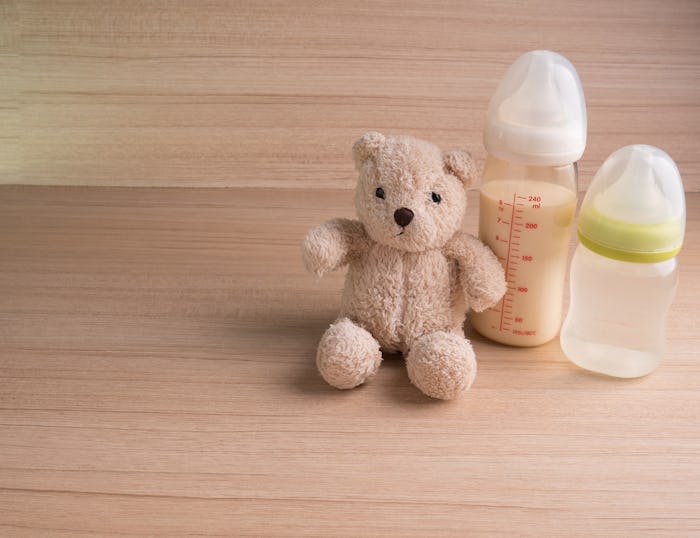Life

Should I Give My Baby Formula Before My Milk Comes In?
The first few days with your newborn will be a messy, beautiful, exhausting blur. Between learning how to breastfeed (if that's what you chose), trying to get the whole sleeping thing down, and somehow function like a semi-normal human, early motherhood is far from easy. For some new moms, their milk supply takes longer than they expected to come in, making breastfeeding seem more difficult. Many moms ask "should I give my baby formula before my milk comes in?" And the question makes sense. If your milk hasn't come in yet, how will your baby get enough nutrition to grow during the first few critical days?
Although each moms' body is different, it turns out that you might not have to wait as long as you thought until your milk comes in. According to Baby Center, for first time moms, it should take around three to four days for your milk to come in fully after giving birth.
However, just because your "milk hasn't come in yet" doesn't mean that you can't feed your baby or that you need to opt for formula for a few days or weeks. Here's why: ever since the middle of your third trimester you've been producing colostrum, a special milk-like substance that is exactly what your baby needs in the early days of life.
According to La Leche League International (LLLI,) colostrum is a yellowish milk that is low in fat and very high in carbohydrates, proteins, and antibodies to keep your baby healthy. It's extremely easy for your baby's tiny body to digest and is made in small (but concentrated) quantities, meaning you might not even realize it's there until you nurse for the first time.
After you bring your baby home from the hospital, you'll be instructed to monitor them closely, to ensure that they're eating enough. In an interview with Romper, IBCLC Tania Archibald explains that, since stool output is the most accurate way to determine that your baby is eating enough, if your baby's stools are still black (called meconium) and haven't transitioned to green-ish or yellow by day four, you may need to have your milk-supply evaluated to make sure it will come in in a timely manner.
In some very rare cases, mothers' milk comes in late, but even then, your colostrum should be enough to sustain them until your milk does arrive fully. LLLI noted that even if you can't express your colostrum or see that it's there, it most likely is. Certainly, some mothers choose to supplement with formula for the first few weeks until they feel like their milk supply is ready, and in some cases there are other conditions getting in the way of their supply, but for the majority of moms, their bodies are equipped to handle things just fine until their breast milk comes in.
If you have any concerns that your baby isn't dirtying enough diapers or that their stools aren't transitioning in color, a trip to your healthcare provider will help clear things up for the both of you.